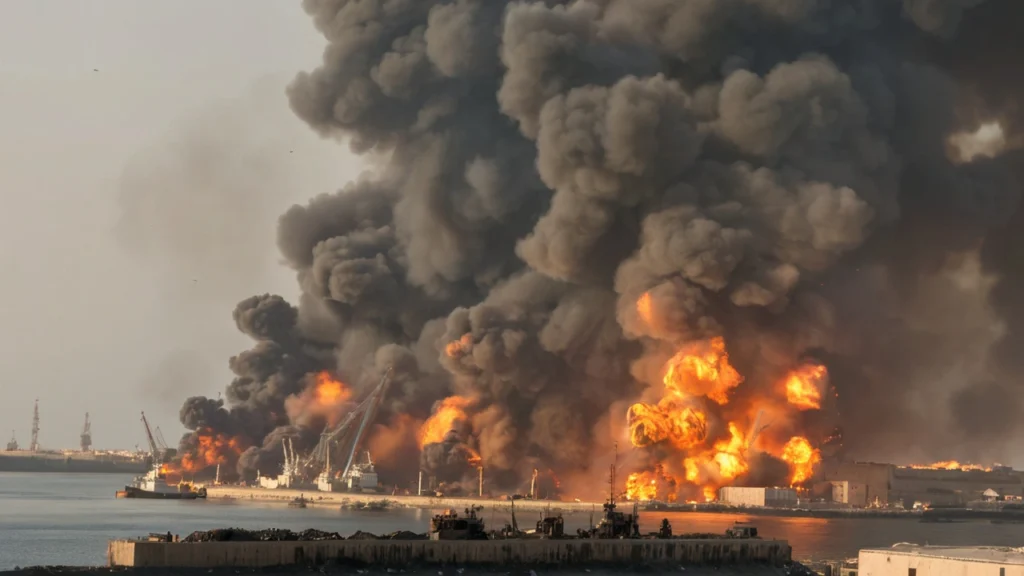Israel Attacks Houthi Infrastructure in Yemen
In a significant development in the Middle East, Israel has launched targeted strikes on Houthi-controlled sites in Yemen. The action focused on key assets that, according to the Israeli military, posed a growing threat to maritime and regional stability. These strikes mark a serious escalation in ongoing regional hostilities involving the Houthis, who have claimed responsibility for several attacks on vessels in the Red Sea and Gulf of Aden in recent months.
Strategic Targets Hit
The airstrikes specifically targeted what are described as essential operational assets. These included engineering vehicles, fuel containers, and vessels believed to be involved in the Houthis’ naval operations. The effort was aimed at disabling the group’s capacity to disrupt shipping lanes and to limit the movement of resources used for launching drone and missile strikes.
The Houthis, who control significant portions of northern Yemen including the capital Sanaa, have been at odds with Israel and Western powers due to their support for regional militias and frequent attacks on international maritime traffic. This latest operation appears to be a direct response to those provocations.
Context Behind the Strikes
Over the past few months, the Red Sea has become a hotspot of conflict. Commercial ships have faced drone and missile threats while passing through critical chokepoints. These attacks are often attributed to the Houthis, who claim they are responding to what they see as Western or Israeli aggression in the region, particularly in connection with the war in Gaza.
The Israeli military has made it clear that its strikes are defensive in nature, designed to eliminate threats before they materialize into broader security crises. According to reports, the targeted equipment was either directly involved in planning operations or enabled attacks on international shipping and naval routes.
Broader Regional Implications
The strikes come at a time when Middle East tensions are already at a high. Iran-backed militias, including the Houthis, have stepped up operations across the region. Their actions often align with broader regional agendas, targeting not just Israel but also Western allies operating in strategic waters.
By extending its military operations into Yemen, Israel is signaling that it is willing to act beyond its immediate borders to neutralize threats. The move also sends a message to other militias and factions that hostile actions will be met with force, regardless of location.
Ongoing Risk in Maritime Routes
The Red Sea and nearby shipping lanes are crucial to global trade. Ongoing instability and targeted assaults have forced some vessels to reroute, increasing shipping times and costs. These new airstrikes are likely to add further urgency to international efforts to secure these waters and protect vessels from further attacks.
While the long-term outcome of these strikes remains uncertain, the immediate effect is clear: Israel is stepping up its campaign to push back against regional threats and reassert control over maritime security in collaboration with its allies.

